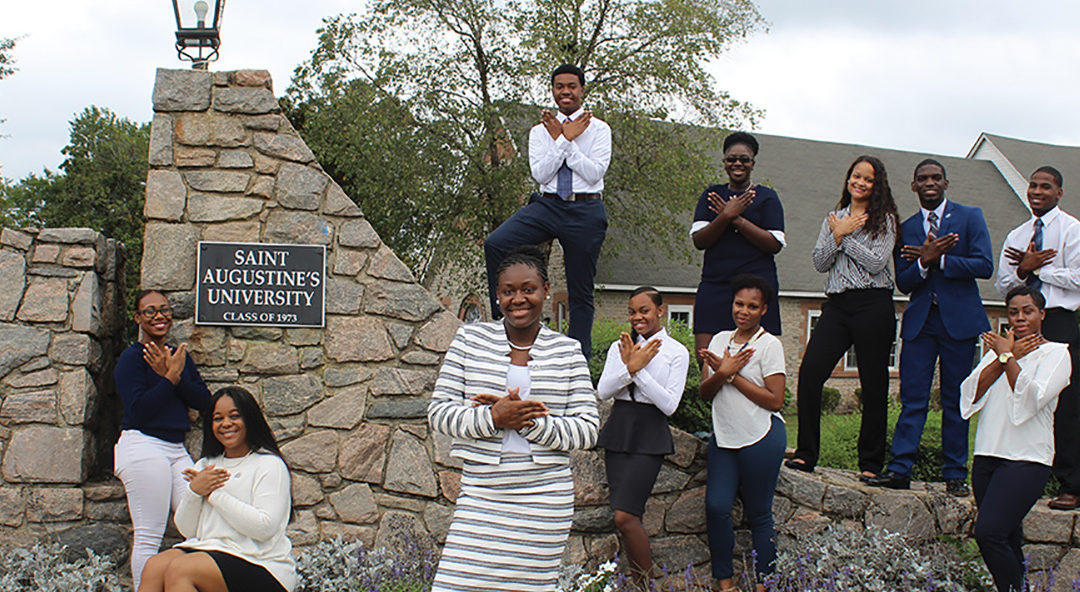The Episcopal Church maintains a number of trusts that provide educational scholarships. The next deadline to apply is April 15, 2024. More information and the application are available from The Episcopal Church.
The full list of scholarship funds is available here.
Many of the funds were established more than a century ago to provide educational opportunities for the children of missionaries or the communities that missionaries served, specifically Native American, Black, and Asian students. Most of the scholarships are intended for theological education – but not all of them! Applicants to have to members of an Episcopal Church.
It’s definitely worth checking out if you’re a college student in needs of money (isn’t that ALL college students?!)
Episcopal students should also talk to their clergy about any scholarships available in their diocese. Many dioceses have scholarship funds specifically for the children of diocesan clergy. But other funds are open to all college or seminary students.
If you are an Episcopalian and you’d like a little help exploring scholarship possibilities, feel free to contact us.

The history of churches establishing scholarship funds intertwines faith, education, and community support. This tradition has deep roots, showcasing the longstanding commitment of religious institutions to nurturing the intellectual and spiritual growth of their congregations and communities.
The Early Beginnings
The concept of church-based scholarship funds can be traced back to the Middle Ages, when the church was a central figure in education. Monasteries, cathedrals, and later, churches played pivotal roles in the establishment of schools and universities across Europe. Notably, the University of Paris and the University of Oxford, among others, owe their origins to the church’s influence and sponsorship. During these times, scholarships were often provided by the church to support the education of clergy and members of the community who were destined for religious life. This was a period when education was largely inaccessible to the general public, and such scholarships were crucial in nurturing the intellectual leaders of the time.
Expansion and Diversification
As the world moved into the Renaissance and beyond, the scope of church-sponsored education broadened. With the advent of the printing press and the increasing value placed on literacy and education, churches began to see the benefit of a more educated congregation. This period saw an increase in the establishment of church-funded schools and colleges, many of which provided scholarships to assist with the education of those who could not afford it. In the United States, churches played a significant role in the establishment of many colleges and universities in the 18th and 19th centuries, such as Harvard (initially a training school for clergy) and Yale. Scholarships from these institutions often had a religious or moral stipulation, reflecting their founders’ intentions.
The Modern Era
In the 20th and 21st centuries, the establishment of scholarship funds by churches has become more structured and widespread. Many denominations and individual churches have set up scholarship programs to support members of their congregations in pursuing higher education. These scholarships are often funded by donations from members of the church community and are designed to support students who demonstrate academic potential, financial need, and a commitment to their faith and community service.
Impact and Importance
Church-established scholarship funds have had a profound impact on countless individuals and communities. They provide financial assistance that can make the difference between a student being able to attend college or not. Beyond the financial aspect, these scholarships often come with a sense of community support and encouragement, reinforcing the recipients’ connections to their faith and church community. They serve as a testament to the church’s commitment to education and its role in promoting personal and community development.
Looking Forward
As we look to the future, the tradition of churches establishing scholarship funds continues to evolve. With the increasing cost of higher education and the growing need for specialized knowledge and skills, these scholarships are more important than ever. Churches are finding innovative ways to fundraise, manage, and distribute scholarships, often leveraging technology and partnerships with educational institutions. The focus is also expanding beyond traditional undergraduate and graduate degrees to include vocational and technical training, reflecting the changing landscape of the workforce and the diverse needs of church communities.
In conclusion, the establishment of scholarship funds by churches is a tradition that reflects the deep connection between faith and education. By supporting the academic and spiritual growth of their members, churches are investing in the future of their communities and the broader society. This enduring legacy is a powerful example of how faith-based institutions can contribute to positive change and development through the power of education.

